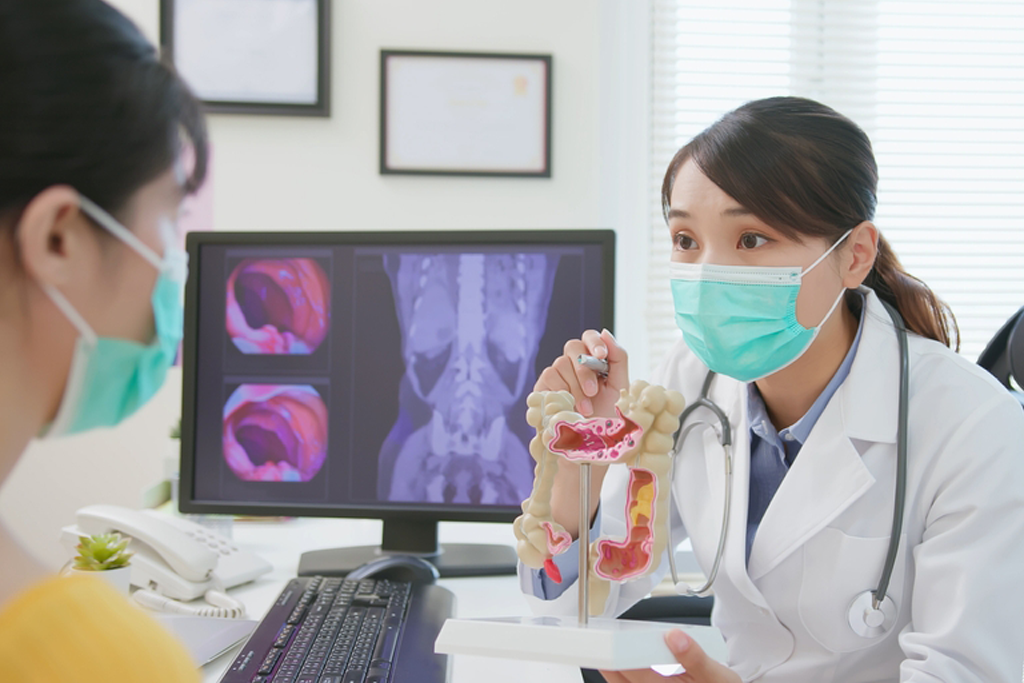What is a Colonoscopy?
A colonoscopy is a medical procedure that allows a gastroenterologist to examine the inside of your colon (large intestine) using a long, flexible tube called a colonoscope. This procedure is used to detect abnormalities such as polyps, tumors, inflammation, and bleeding.
Why Do I Need a Colonoscopy?
A colonoscopy is recommended for several reasons, including:
- Screening for Colorectal Cancer: It is the most effective method for detecting and preventing colorectal cancer.
- Investigating Symptoms: To find the cause of symptoms like abdominal pain, rectal bleeding, chronic diarrhea, or unexplained weight loss.
- Monitoring Inflammatory Bowel Disease: To assess conditions like Crohn’s disease and ulcerative colitis.
- Polyp Removal: Polyps found during the procedure can be removed to prevent them from becoming cancerous.
How Do I Prepare for a Colonoscopy?
Proper preparation is crucial for a successful colonoscopy. Here’s what you need to do:
1. Dietary Restrictions
A few days before the procedure, you will need to follow a special diet:
- Low-Fiber Diet: Start with a low-fiber diet 3-4 days before the procedure.
- Clear Liquid Diet: The day before the colonoscopy, switch to a clear liquid diet. This includes broth, clear juices, gelatin, and popsicles.
2. Bowel Preparation
You will be given a bowel preparation kit that includes a laxative. Follow your doctor’s instructions carefully to ensure your colon is completely clear:
- Timing: Take the laxative as directed, usually the evening before and the morning of the procedure.
- Hydration: Drink plenty of clear liquids to stay hydrated and help flush out your system.
What Happens During the Procedure?
Understanding what to expect can help ease anxiety:
- Sedation: You will receive a sedative to help you relax and minimize discomfort.
- Insertion of Colonoscope: The doctor will gently insert the colonoscope into your rectum and slowly guide it through your colon.
- Examination: The camera on the colonoscope sends images to a monitor, allowing the doctor to examine your colon and perform any necessary interventions, such as polyp removal.
- Duration: The procedure typically takes about 30-60 minutes.
What Can I Expect After the Procedure?
After the colonoscopy, you will need some time to recover from the sedation:
- Observation: You will be monitored for a short period to ensure there are no immediate complications.
- Rest: Plan to rest for the remainder of the day. Avoid driving or making important decisions until the sedative wears off.
- Diet: You can resume eating but start with light meals and gradually return to your normal diet.
Are There Any Risks or Complications?
While a colonoscopy is generally safe, there are some risks to be aware of:
- Bleeding: There may be a small amount of bleeding, especially if a polyp was removed.
- Perforation: In rare cases, the colon wall may be perforated, which could require surgery.
- Reactions to Sedation: Some people may experience adverse reactions to the sedative used during the procedure.
When Should I See a Specialist?
Consult with a gastroenterologist if:
- You are 50 or older: Routine screening for colorectal cancer is recommended starting at age 50.
- You have a family history of colorectal cancer: You may need to start screening earlier.
- You have symptoms: Persistent symptoms like rectal bleeding, abdominal pain, or changes in bowel habits should be evaluated.
Conclusion
A colonoscopy is a vital procedure for maintaining digestive health and preventing serious conditions like colorectal cancer. By understanding what to expect and how to prepare, you can approach your colonoscopy with confidence.
For more information and expert care, visit Gastrocare Clinic, Mulund and consult with Dr. Suryaprakash Bhandari, a leading gastroenterologist dedicated to your digestive health.

